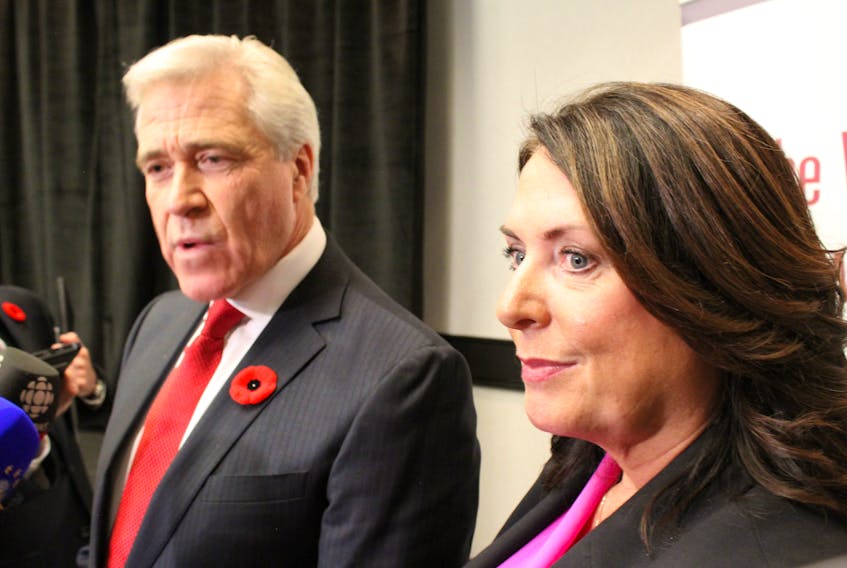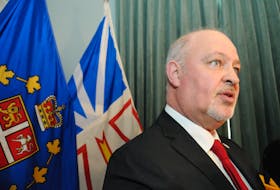
Premier Dwight Ball wouldn’t rule out any future court action to try and overturn the Churchill Falls power contract, but the focus now is on 2041.
The Supreme Court issued a 7-1 decision on Friday against reopening the lopsided contract.
This province presented a “good faith” argument, saying when the contract was written the ensuing inequity couldn’t have been predicted. Because of that, $27.5 billion has flowed into Quebec, while Newfoundland and Labrador has seen around $2 billion.
The inequity was caused by higher than predicted electricity prices, as nuclear energy elsewhere in Canada didn’t take off as expected at the time.
The good faith argument was first presented in court in 2010, with Friday’s decision ending eight years of argument.
Justice Malcolm Rowe, the only judge from Newfoundland and Labrador, was the dissenting opinion.
The court’s decision essentially followed suit with previous decisions against the matter: the contract isn’t a joint venture contract and a deal’s a deal:
“Both parties to the contract were experienced, and they negotiated its clauses at length,” wrote Justice Clement Gascon, in his decision.
“The Court cannot change the content of the contract, nor can it require the parties to renegotiate certain terms of the contract or to share the benefits otherwise than as provided for in the contract.”
For Ball, the focus is on rebuilding a long-strained relationship with Quebec, with the contract being one of the primary sore points.
“We’re disappointed, but it’s not unexpected,” said Ball.
“It will not interfere with the working relationship we have with Quebec.”
It’s hard to say whether another case will make its way through the courts.
“I’m not going to predict what the future will be with court challenges, but what I am comfortable in saying is that we are committed to strengthening relationships with other provinces, including provinces like Quebec,” said Ball.
Progressive Conservative Leader Ches Crosbie also wouldn’t say for certain whether he’d snuff out any future court action against the contract.
But, he says the uncertainty leading up to the decision was a missed opportunity to renegotiate the contract outside of court.
“Nobody can say with certainty what they outcome is going to be. They recognized there was a risk – a very substantial risk,” said Crosbie.
“When the other guy recognizes there’s a risk, that’s something you could work with the put in place an agreement to deal with the risk and takes it off their plate.”
Two previous arguments to the Supreme Court went in Quebec’s favour in previous years, along with many other cases in lower courts that all went in Quebec’s favour.
In a statement, New Democratic Leader Gerry Rogers says it’s time to move forward to other issues.
I share with all Newfoundlanders and Labradorians the frustration that this lopsided contract with Hydro-Quebec has not been, and likely won’t be, remedied to our satisfaction,” she said.
“Ultimately, the question of whether or not N.L. should challenge the contract once again is one best answered by government’s expert legal professionals and advisors who are intimately familiar with the matter.”
A statement from Nalcor says the utility tried “every legal avenue” in Quebec court and the Supreme Court of Canada to change the contract, but it will respect the decision.
“This decision is final and brings to an end an eight-year legal process. We are disappointed with the outcome but will continue to honour the contract and continue to work cooperatively with Hydro-Québec,” read the statement.
Nalcor’s own legal feeds as of September total $5.8 million. The decision awarded $1.5 million in damages to be paid to Quebec.
The power contract expires in 2041.
Twitter: DavidMaherNL
Related story:
Good Faith appeal in Churchill Falls power contract falls flat









